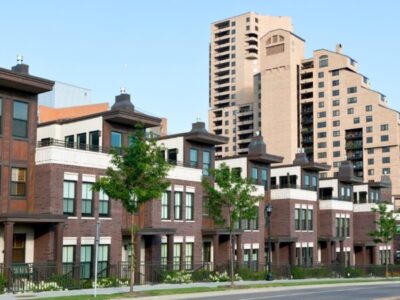A recent study of up-zonings in Chicago showed that… allowing higher densities increases the market price of existing housing units but yields no additional new housing construction in the short-term. How can we leverage this benefit for the public good? See this short Abstract…
Up–zoning Chicago: Impacts of a Zoning Reform on Property Values and Housing Construction
by Yonah Freemark
Urban Affairs Review.
January 29, 2019
Abstract:
What are the local-level impacts of zoning change? I study recent Chicago up–zonings that increased allowed densities and reduced parking requirements in a manner exogenous of development plans and neighborhood characteristics. To evaluate outcomes, I use difference-in-differences tests on property transaction prices and housing-unit construction permits. I detect significant, robust increases in values for transactions on parcels that received a boost in allowed building size. I also identify value increases for residential condominiums, indicating that up–zoning increased prices of existing housing units. I find no impacts of the reforms, however, on the number of newly permitted dwellings over five years. As such, I demonstrate that the short-term, local-level impacts of up–zoning are higher property prices but no additional new housing construction.
Comment:
Up–zoning raises land values, an unearned increment received by landowners; but new construction lags. If a split-rate land value property tax with a higher rate on land assessments and lower rate on building assessments were introduced, would that not provide an incentive to invest in the development of new units sooner than later? Furthermore, would a heavy land tax exert a downward pressure on those rising land values? Certainly, the land tax solution would be preferable to giving away windfalls and having to subsidize new affordable units through public subsidies.




